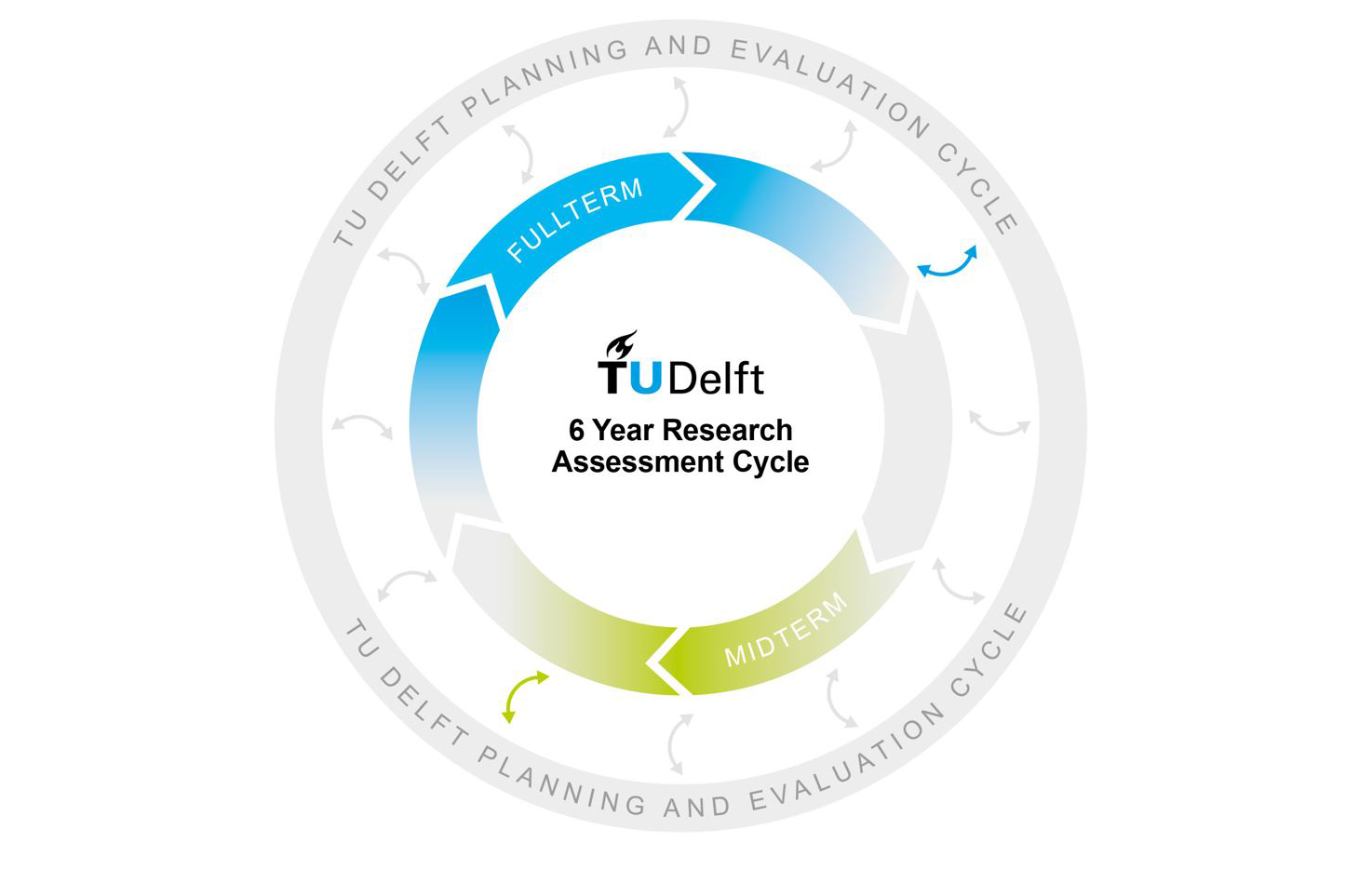Quality Assurance Research
Since the 1980’s, all research conducted at Dutch universities is systematically assessed every six years. For these assessments the Strategy Evaluation Protocol (SEP 2021-2027) is used, which is drawn up by the Association of Universities in the Netherlands (UNL), the Netherlands Organisation for Scientific Research (NWO) and the Royal Academy of Sciences (KNAW). All research conducted at Delft University of Technology is assessed using this protocol. The research assessments are commissioned by the Executive Board of the University. In the TU Delft Research Assessments Protocol (RAP, updated in April 2022) the implementation of the SEP in Delft is worked out in detail. The planning of the assessments is available here. The six year assessmentcycle includes a fullterm and a midterm assessment per research domain and is strongly connected the the P&E cycle.
The self-evaluation forms the basis of the assessment. In the self-evaluation, which consists of a maximum of 20 pages excluding case studies and attachments, the department reflects on its aims, strategy and achievements during the previous six years as well as its aims and strategy for the future in a coherent, narrative argument, supported wherever possible, with factual evidence derived from well-substantiated indicators. Specifically, the committee is asked to judge the performance of the department on the main assessment criteria and offer its written conclusions as well as recommendations based on considerations and arguments. The main assessment criteria are:
- Research quality
- Societal relevance of the research
- Viability of the research
In concert with these criteria, the department reflects on four specific aspects: Open Science, PhD Policy and Training, Academic Culture and Human Resources Policy.
Based on the self-evaluation and the site visit the independent committee reports to the Executive Board. Subsequently, the Executive Board presents its official position and publishes a summary of the self-evaluation – including the case studies –, the assessment report, and the position document on the TU Delft website within six months of the site visit. The faculty involved and the evaluated departments draw up a joint reaction, as well as a proposal to implement the committee’s recommendations.
In its annual report, the Executive Board indicates which of the institution’s departments have been assessed, what the most important conclusions and recommendations are, and what follow-up actions have been taken. Three years after the main evaluation a lighter midterm-assessment takes place, commissioned by the dean of the faculty. The assessment preparations, outcomes, and follow-up are discussed biannually, during the spring and fall meetings. Where relevant, the outcomes and follow-up of the assessments are embedded in the executive work agreements.
